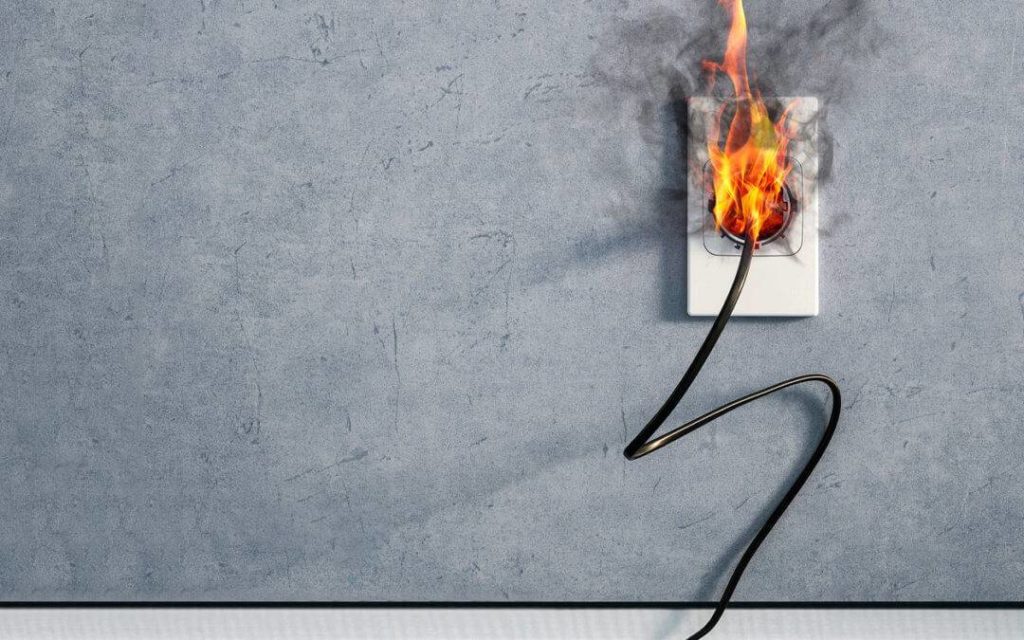We all use electricity every day, heating our homes, powering our workstations, and providing us with constant entertainment. For the most part, electricity is easy to use responsibly, so it seems safe. But the reality is, electricity can be extremely dangerous.
We are all aware that an electric shock of sufficient power could seriously injure or even kill you. Electricity related mistakes and flaws can also lead to a major house fire. According to the United States Fire Administration, electrical fires account for 6.3 percent of all house fires, despite electricity related fires being relatively easy to prevent.
What steps can you take to prevent an electrical fire and respond to one appropriately?
The Importance of Preparation
Even if you take all the proper precautions, there’s a chance that an electrical fire could break out. That’s why it’s important to be prepared.
- Insurance. Make sure your insurance policy covers fire related damage. This is included in most types of property insurance, but it pays to check the details. If a fire does burn your house down, you want to make sure you’re protected.
- Alarms. It’s also important to invest in smoke alarms so that when a fire breaks out, you’ll get a loud audio notification, and your family will have plenty of time to escape. Smoke alarms save lives, so make sure you have one in every major area of your home and test them regularly to ensure they’re working properly.
- Fire suppression. If you want even more robust defense, invest in a fire suppression system. There are many types of fire suppression systems available, including fire suppression systems specifically designed to handle electrical fires. These devices will automatically trigger in response to a fire and stop the fire from spreading or extinguish it entirely.
- An evacuation plan. Don’t forget to create an evacuation plan for you and your family. Identify multiple possible routes to exit the house and identify a meeting spot where you’ll all meet up outside after a fire.
- Emergency response preparedness. With an electrical fire, every second counts. You need to be ready to leave the building as quickly as possible and call emergency services. Make sure all your family members are also educated and trained on emergency preparedness.
Preventing an Electrical Fire

With that out of the way, what steps can you take to prevent an electrical fire?
- Inspect your electrical outlets. Take the time to inspect your electrical outlets on a regular basis. Are they completely covered? Do they seem cracked or broken in any way? Is there an accumulation of dust and debris or are there any exposed wire elements? Any flaws or defects here could ultimately result in a fire.
- Handle plugs appropriately. You also need to handle your plugs appropriately. Don’t try to cram a plug into an outlet where it doesn’t seem to fit and pull your plugs out firmly as closely as possible to the outlet. Also, don’t remove the grounding pin from 3 pronged plugs and don’t make other haphazard modifications.
- Avoid overloading outlets. One of the most common causes of electrical fires is overloaded outlets. It’s fine to use a power strip or an extension cord to improve accessibility for your electrical needs, but cramming too many cords into one service outlet is asking for a disaster.
- Inspect your cords. Inspect all of your cords before plugging them in; if you notice any fraying or tears, either repair the cord or stop using the device until you can find a replacement.
- Use the right extension cords. Different extension cords are rated for different uses. For example, they may have different amp capacities, and only some are approved for outdoor use. Make sure you understand what your extension cords are for and only use them as they are intended to be used.
- Install and test GFCIs. GFCI outlets are designed to cut off power in response to certain conditions; if the outlet senses a surge in the amount of electricity flowing out of the outlet, it trips a circuit as a protective measure. These can be useful in preventing fires, so install them and test them regularly.
- Rewire your house (if necessary). Old houses are particularly vulnerable to electrical fires because of the way they’re wired. Knob and tube wiring, which was prevalent throughout the early 20th century, is now known to be a significant fire hazard – and may not be able to handle the increased loads of modern appliances and devices. You may need to rewire your house to maximize its safety.
If you follow these steps, you’ll be much less likely to experience an electrical fire, but your chances will never be zero. Stay vigilant and always be prepared to escape a burning building if necessary.






